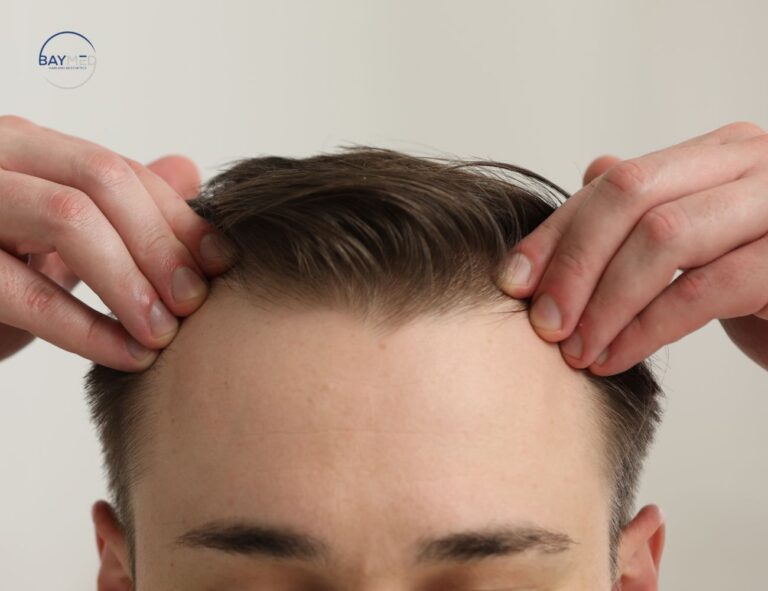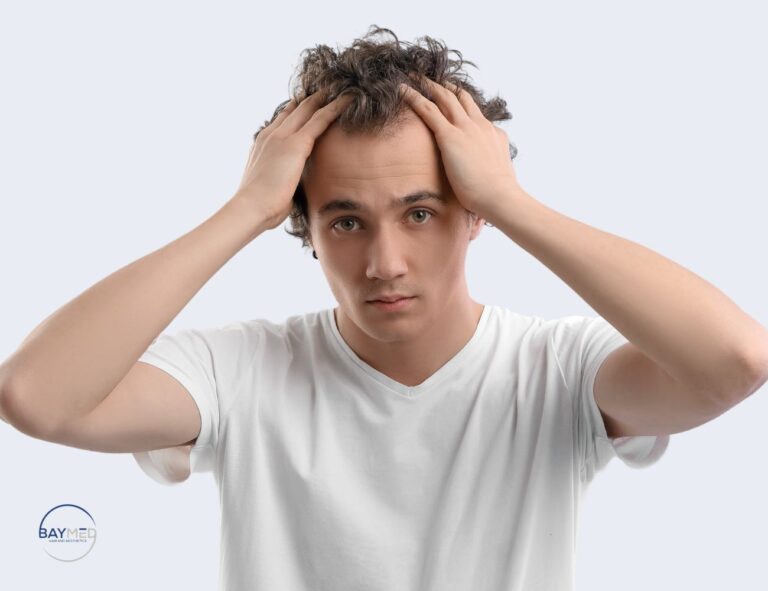When Ashton Kutcher started losing his hair, he resorted to wearing a ball cap all the time to hide it. But some people are concerned that wearing a hat all the time can actually speed up or even cause hair loss.
Does Wearing a Hat Cause Baldness?
Not exactly, but it can contribute to hair loss if you wear a hat that is too tight. Regular, routine wear of a hat that fits very tightly can lead to hair loss, known as traction alopecia.
Per WebMD, hats don’t usually pull the hair, but a very tight cap that puts pressure on the scalp or pulls the hair may. Traction alopecia is more commonly associated with habits like tight braids, ponytails, and buns worn day after day because the tightness pulls on the scalp, causing scarring and miniaturization of the hair follicles. That, in turn, can lead to hair becoming very fine or follicles that stop producing hair altogether. Tight hats or tight hat bands can lead to similar damage.
Dr. Joseph Greco, a dermatologist at UCLA Health, explained that many people who start seeing hair loss follow Kutcher’s example and wear a hat to hide it. Then when they continue to lose hair, they blame the hat.
While the simple act of wearing a hat does not contribute to hair loss, doctors do say that it’s best to talk to your hair loss specialist about your specific situation. Caps that are not kept clean or tight may exacerbate an existing problem. Deciding about your hat and hair loss is a question to pose to your doctor.
Does Wearing a Hat Help Hair Grow?
For patients in the early stages of hair loss, a specific type of hat might be helpful. Capillus hats, a brand of laser caps, show some evidence of promoting new growth when used early in hair loss.
According to WebMD,
The FDA has approved these laser caps for use but has yet to state how well they work. That is in large part because the research is continuing and evolving.
Dealing with Hair Loss? Call BayMed Hair and Aesthetics
Dr. Stavros Papandreou at BayMed Hair and Aesthetics is the best person to help you determine what course of treatment might stop or slow your hair loss. We can also discuss options if medical intervention can’t prevent your hair loss. We have a variety of surgical and non-surgical treatments. Contact us and schedule a consultation today.





